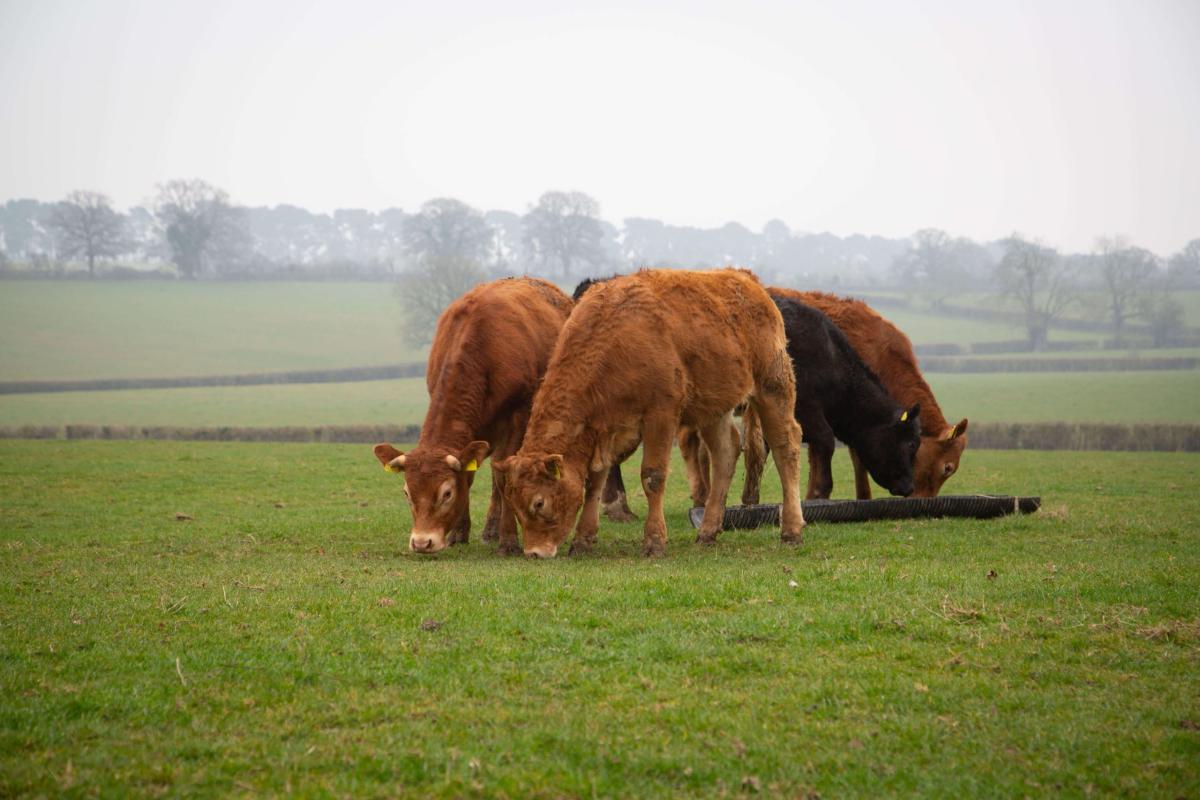
Magnesium is a vital mineral in the health and productivity of cattle, yet it is often overlooked until problems arise. Magnesium deficiency, also known as hypomagnesaemia or grass tetany, is a condition that can have severe implications for the health of your herd and the efficiency of your farm operations. In this blog, we’ll explore what magnesium deficiency is, why magnesium is essential for cows, the causes behind this common issue, and how it can be effectively prevented when keeping cows.
Magnesium deficiency in cows
Magnesium deficiency in cattle is most commonly seen in lactating cows grazing lush, fast-growing grass, particularly in spring and autumn. The condition develops when there is insufficient magnesium in the bloodstream, which is critical for proper nerve and muscle function.
Clinical signs can range from restlessness and muscle tremors to staggering, convulsions, and even sudden death if not treated swiftly. Subclinical deficiency, where no obvious signs are visible, can still impair growth rates, fertility, and milk production.
Why do cows need magnesium
Magnesium plays a central role in numerous physiological processes in cows. It supports:
Muscle and nerve function – Ensuring proper movement and avoiding neuromuscular problems.
Enzyme activation – Involved in energy production and metabolic processes.
Calcium regulation – Works closely with calcium to support skeletal health and milk production.
Unlike some other minerals, magnesium is not stored in large quantities in the body. This means cows need a daily dietary intake to maintain adequate levels, particularly during high-stress periods such as early lactation.
What causes magnesium deficiency
Several factors can contribute to the development of magnesium deficiency in cows, often due to a combination of these.
One of the main contributors is the grazing of rapidly growing pastures in spring and autumn. These grasses tend to be naturally low in magnesium. They may contain high levels of potassium and nitrogen, both of which interfere with the absorption of magnesium in the cow’s digestive system. As a result, even if the intake appears adequate, absorption can be compromised.
Due to their increased nutritional needs, high-yielding dairy cows are particularly vulnerable. The high magnesium demand required for milk production makes them more susceptible to deficiency, especially if pasture quality is poor.
Adverse weather conditions also play a role. Cold and wet weather can reduce dry matter intake by making pasture less palatable or by physically restricting access to grazing areas, leading to a lower overall intake of magnesium.
In addition, farming practices can contribute to the problem. Soils that are heavily fertilised with potassium-rich compounds can produce grass that inhibits magnesium uptake, compounding the issue further.
Preventative measures

Preventing magnesium deficiency involves a proactive, multifaceted approach, particularly during high-risk times of year.
One of the most effective strategies is targeted supplementation. This can take various forms depending on what suits your operation best. Many farmers use lick buckets or blocks that contain added magnesium, which cows can access freely while grazing. Others opt for slow-release mineral boluses that deliver a steady supply of magnesium directly into the cow’s rumen. Alternatively, magnesium chloride can be added to the drinking water, or pasture can be dusted with magnesium oxide to increase mineral availability during grazing.
Good pasture management also plays a vital role. Avoiding the excessive use of nitrogen and potassium fertilisers helps to maintain the mineral balance in the soil and prevents interference with magnesium absorption. Rotating grazing areas and introducing pasture species such as clover or deep-rooting herbs can also improve magnesium availability.
Closely monitoring high-risk groups, particularly older cows and high-producing dairy animals, is also essential. Regular blood testing can help detect subclinical deficiency before it escalates into a more serious issue. This allows for timely intervention and avoids the performance losses associated with untreated deficiency.
Lastly, reducing stress on the herd during vulnerable periods can make a significant difference. Stressful situations, such as abrupt weather changes or transportation, increase the magnesium requirement and can precipitate the onset of deficiency. Keeping cows calm and comfortable during these times can help mitigate risk.
